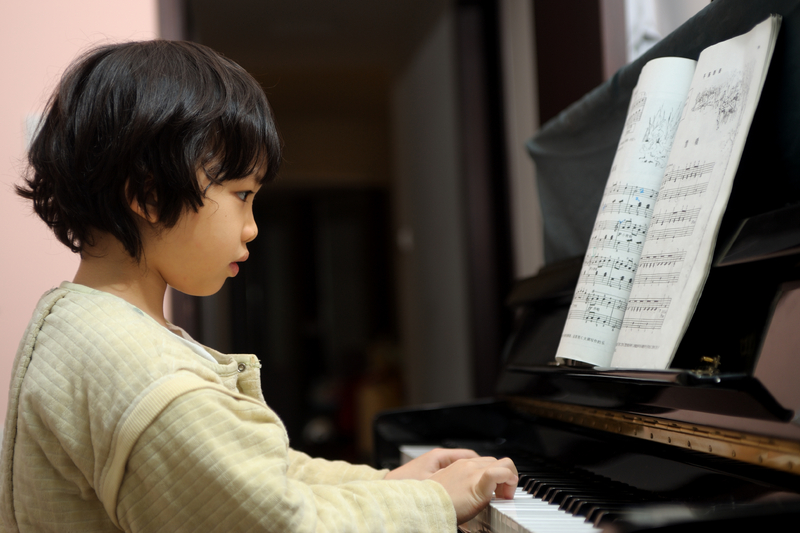Kids' Music Lessons Have Lasting Brain Benefits

Even if you stopped going to piano lessons after middle school and no longer remember how to play Für Elise, your brain might be reaping the benefits of that early instruction. New research suggests just a few years of musical training in childhood could improve how the brain processes sound in adulthood, leading to better listening and learning skills.
The Northwestern University study, published today (Aug. 22) in the journal Neuroscience, focused on what happens after a person puts down an instrument following just a few years of training, a common childhood experience. The study was small but builds on previous research that found older adults with musical experience perform better on some cognitive tests than those who had never studied music.
Forty-five young adults participated in the experiment and were separated into three groups: no musical instruction, one to 5 years of instruction and six to 11 years of training. (Both musically trained groups started learning an instrument at about age 9.) The researchers measured the subjects' electrical signals from the auditory brainstem as they listened to different sounds. Both musically trained groups had enhanced neural responses to complex sounds compared with their peers with no musical training as kids, according to a statement from Northwestern.
"Based on what we already know about the ways that music helps shape the brain, the study suggests that short-term music lessons may enhance lifelong listening and learning," study researcher Nina Kraus, director of Northwestern's Auditory Neuroscience Laboratory, said in the statement.
Previous research on musicians showed that enhanced brain responses to sound are associated with sharpened auditory perception and auditory communication skills.
"From this earlier research, we infer that a few years of music lessons also confer advantages in how one perceives and attends to sounds in everyday communication situations, such as noisy restaurants or rides on the 'L,'" Kraus said, referring to Chicago's public transit system.
Follow LiveScience on Twitter @livescience. We're also on Facebook & Google+.
Sign up for the Live Science daily newsletter now
Get the world’s most fascinating discoveries delivered straight to your inbox.










